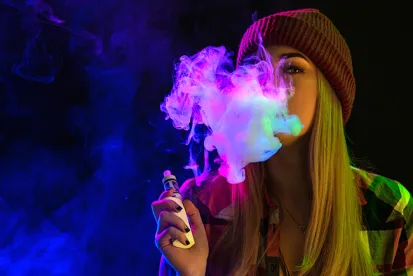Amidst growing lawsuits and a call for a ban of vaping by the American Medical Association, journalists from the LA Times have reviewed over 3,000 internal records from leading vape company Juul and discovered that their proprietary formula was based on 40-year old nicotine research pioneered by R.J. Reynolds, the manufacturer of Camel cigarettes.
Scrutiny of the popular vaping brand has been increasing. Since 2018, Juul has been the subject of concerns from numerous research and regulatory bodies regarding their claims to offer a less addictive alternative to cigarettes. Most notable include a warning letter from the FDA stating that the company violated federal regulations because it hadn’t secured federal approval to promote and sell its products as a healthier option. According to the FDA letter, Juul’s claims include referring to its products as “99% safer than cigarettes, “much safer” than cigarettes, “totally safe,” and “a safer alternative than smoking cigarettes.”
Juul stormed on the scene in 2015 and held a 70% share of the e-cigarette market by 2018. Founders James Monsees and Adam Bowen have claimed that the product was a healthier alternative to smoking and could be used as a smoking cessation device. However, consumer watch advocates and researchers have drawn attention to the lack of substantiation to this claim.
“Juul says their goal is to save the lives of a billion smokers,” comments Robert Jackler, a Stanford University researcher concentrated on teens and e-cigarettes. “You have to ask yourself, ‘Is the company’s behavior aligned with that goal?’”
There is a troubling link between Juul and the tobacco industry. Juul may claim to have “its roots in Silicon Valley, not in fields of tobacco,” but the fact remains that the current CEO of the company is K.C. Crosthwaite, formerly the chief growth officer of Altria. Altria itself owns a 35% share in the company. If this wasn’t cause enough for concern, as the LA Times article illuminates, the company’s success relies heavily on tobacco industry research.
Juul vaping technology is based on two elements: a battery-operated e-cigarette and a cartridge that contains vaping fluid comprised of nicotine salts, glycerol, propylene glycol, benzoic acid, and flavorings. The ingredient that gives Juul its potency? Nicotine salts, which deliver three times as much nicotine as the other leading e-cigarettes.
Nicotine salts date back to the 1970s. Reynolds forecasted a decline in cigarette consumers due to a lack of young smokers. To obtain “a larger segment of the youth market” by packing “more ‘enjoyment’ or ‘kicks’ (nicotine),” the company developed and patented nicotine salts. This product was milder, contained high levels of nicotine, and could be dissolved in water, making it easy to disperse. It was this research that Juul cited when filing its patent for vaping fluid via Pax Lab in 2015.
Much like its predecessor, Juul’s marketing has been suspected of targeting potential youth clientele. Its product design is sleek, modeled after Apple products. Its vaping fluid was, until recently, available in numerous fruit flavor.
However, its marketing has been the biggest target for researchers and regulators. Juul’s early marketing focused heavily on youth markets, relying on social media and young influencer marketing. This approach created a powerful peer-to-peer effect amongst teens. Juul shut down its social media in 2018, but the result lives on today; searches of Instagram yield huge volumes of vaping related hashtags among young account holders.
Juul denies having focused its marketing efforts on youth consumers, but studies have tracked a massive increase in vaping among minors since Juul came on the market. The CDC estimates that 3.6 million middle and high schoolers were using e-cigarettes in 2018 in the U.S. By comparison, there were 6.9 million adult e-cigarette users in 2017.
Juul is currently under federal investigation, and while the Trump administration has delayed any decision on restricting the e-cigarette industry, there are numerous cases of ongoing civil litigation against the company. Both California and New York have filed suit against Juul on the grounds that the company deliberately marketed its products to youth.
Despite efforts to portray vaping as a healthier, safer alternative to smoking, these claims are unsubstantiated. According to numbers from the Centers for Disease Control and Prevention, there have been close to 1,500 cases of serious lung disease and 33 deaths linked to vaping even as vaping continues to grow in popularity.



 />i
/>i
